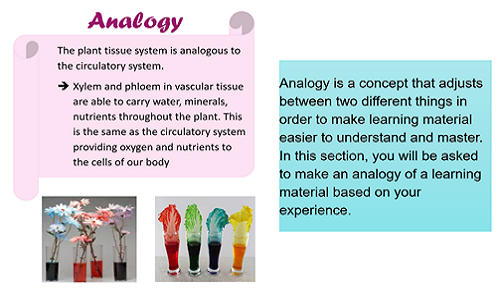
Needs Analysis of Metacognitive Strategy Integration in Electronic Module Development to Improve Higher Order Thinking Skills
Abstract
This study aims to identify and explore metacognitive strategies that can be integrated into electronic modules to improve Higher Order Thinking Skills (HOTS). The initial research was conducted on 49 respondents from students majoring in Biology Education. The data collection instrument used a metacognitive test with 5 indicators: 1) Design what 2) elaboration; 3) Identify 4) Implement 5) Troubleshooting. The results of the metacognitive ability test show that in indicators 1 and 5 there are 53.06% and 40.81% who have metacognitive abilities. The results of the needs analysis are used as the basis for developing electronic modules by integrating metacognitive strategies in the form of analogies, mnemonics, and discrepant events. This research is Research and Development (R&D), this research develops a metacognitive-based e-module that refers to the ADDIE model, in this paper the data obtained from research up to the development stage. The results of the validity test by the validator showed that the metacognitive-based e-module obtained a score of 3.8 with a very valid category. The resulting e-module has the potential to improve students' higher-order thinking skills.
Keywords
Full Text:
PDFReferences
Anggoro, S., Widodo, A., Suhandi, A., & Treagust, D. F. (2019). Using a discrepant event to facilitate preservice elementary teachers’ conceptual change about force and motion. Eurasia Journal of Mathematics, Science & Technology Education.
Djudin, T., & Grapragasem, S. (2019). The Use of Pictorial Analogy to Increase Students’ Achievement and Its Retention of Physics Lessons of Direct Current. Jurnal Penelitian Fisika dan Aplikasinya (JPFA), 9(2), 140-151.
Fuhrmann, T., Bar, C., & Blikstein, P. (2020). Identifying Discrepant Events as a Strategy to Improve Critical Thinking About Scientific Models in a Heat Transfer Unit in Middle-School.
Jones, B. A. (2014). ADDIE model (Instructional design).
Lubin, J. & Pollaway, EA (2016). Mnemonic Instruction in Science and Social Studies for Students with Learning Problems: A Review. Learning Disabilities: A Contemporary Journal, 14(2) 207-24.
Mitsea, E., & Drigas, A. (2019). A Journey into the metacognitive learning strategies. International Journal of Online & Biomedical Engineering, 15(14).
Muijs, D., & Bokhove, C. (2020). Metacognition and Self-Regulation: Evidence Review. Education Endowment Foundation.
Parlan, P., & Rahayu, S. (2021). Students’ higher order thinking skills (HOTS) in metacognitive learning strategy. AIP Conference Proceedings, 2330(1), 020035
Remigio, K. B., Yangco, R. T., & Espinosa, A. A. (2018). Analogy-enhanced instruction: Effects on reasoning skills in science. MOJES: Malaysian Online Journal of Educational Sciences, 2(2), 1-9.
Safitri, I., & Hasibuan, L. R. (2018). The Character Education Through Analogy Learning Implementation on Vector Concepts. Jurnal Penelitian & Pengembangan Pendidikan Fisika, 4(2), 75-82.
Syamsiara, N. U. R., ZUBAİDAH, S., MAHANAL, S., & ROHMAN, F. (2020). ERCoRe learning model to improve creative-thinking skills of preservice biology teachers. Journal for the Education of Gifted Young Scientists, 8(1), 549-569.
Yuningsih & Susilo, M.J. (2018). Study of Analogy Approaches in Meaningful Biology Learning. Brilliant: Research and Conceptual Journal, 3(3), 268-279.
DOI: http://dx.doi.org/10.31258/jes.6.3.p.419-428
Refbacks
- There are currently no refbacks.
Copyright (c) 2022 Zara Faraniza, Evi Suryawati, S Syafrinal

This work is licensed under a Creative Commons Attribution 4.0 International License.
Publisher: FKIP Universitas Riau












